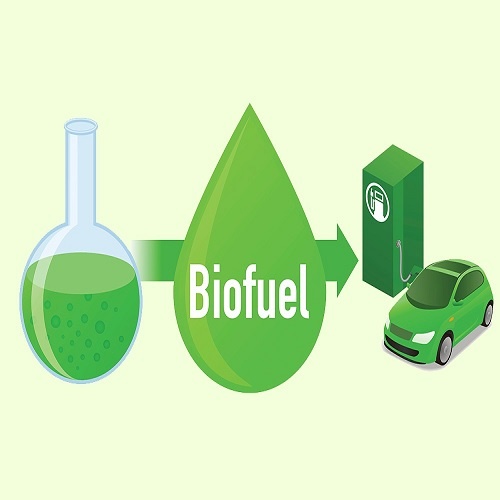The Pradhan Mantri JI-VAN Yojana (2G Ethanol Policy) is a government initiative in India aimed at promoting the production of second-generation (2G) ethanol from sources like agricultural residues and industrial waste. This policy seeks to reduce reliance on fossil fuels, minimize environmental pollution, and support rural economies by creating a sustainable biofuel supply chain.
Recently, this policy underwent significant amendments, extending its timeline by five years to 2028-29. The revised scheme now includes a wider array of advanced biofuels produced from various feedstocks, such as lignocellulosic materials, synthesis gas, and algae. By incorporating these diverse sources, the policy aims to enhance the sector’s resilience and sustainability.
Overview of the Pradhan Mantri JI-VAN Yojana
The Pradhan Mantri JI-VAN Yojana (2G Ethanol Policy) was initially launched to promote the production of second-generation (2G) ethanol from lignocellulosic biomass, such as agricultural residues and bagasse. This initiative aimed to reduce dependency on fossil fuels, mitigate environmental pollution, and support rural economies by creating a sustainable biofuel supply chain.
Key Amendments to the Policy
1. Extended Timeline
One of the most noteworthy changes is the extension of the scheme’s implementation timeline by five years, now extending to 2028-29. This extension reflects the government’s commitment to giving the biofuel sector ample time to mature and integrate advanced technologies. The additional time will allow existing and new projects to navigate developmental challenges, scale operations, and achieve commercial viability. This extended horizon also provides a more stable policy environment, which is crucial for attracting investment and fostering long-term growth in the sector.
2. Expanded Scope
The modified scheme now encompasses a broader range of advanced biofuels produced from various feedstocks, including:
– Lignocellulosic Feedstocks: These include agricultural residues like straw and stubble, forestry residues, and industrial waste. By utilizing these materials, the policy supports the efficient use of biomass that would otherwise go to waste.
– Synthesis (Syn) Gas: Produced through the gasification of biomass, syn gas can be converted into ethanol, adding a versatile fuel option to the policy’s scope.
– Algae: Algae-based biofuels represent a promising area due to their high growth rates and potential for high yield, making them an attractive feedstock for sustainable biofuel production.
This expanded scope acknowledges the diverse sources of biomass and the need for a multi-faceted approach to biofuel production. By including a variety of feedstocks, the policy aims to enhance the sector’s resilience and sustainability.
3. Inclusion of “Bolt-on” Plants & “Brownfield Projects”
The amendment introduces provisions for “bolt-on” plants and “brownfield projects” to benefit from the scheme.
– Bolt-on Plants: These are facilities that integrate biofuel production capabilities into existing infrastructure, thereby optimizing the use of existing assets and reducing the need for new construction. This approach not only improves economic feasibility but also accelerates the deployment of biofuel technologies.
Advantages:
– Cost-Effective: Leveraging existing facilities reduces the capital investment required for new biofuel projects.
– Efficient Resource Utilization: Maximizes the use of existing infrastructure for biofuel production.
– Accelerated Deployment: Allows for faster implementation of biofuel technologies by building upon established structures.
Brownfield Projects: These projects involve upgrading or repurposing existing industrial sites for biofuel production. By leveraging existing infrastructure and operational experience, brownfield projects can significantly reduce the costs and risks associated with new biofuel ventures.
Advantages:
– Cost Savings: Repurposing existing sites reduces the costs associated with building new facilities from scratch.
– Risk Mitigation: Utilizing brownfield sites with established infrastructure lowers the risks typically associated with new biofuel ventures.
– Sustainable Development: Converting brownfield sites for biofuel production promotes the sustainable reuse of industrial land while contributing to environmental goals.
The inclusion of these project types is a strategic move to enhance the sector’s efficiency and viability. It allows for the faster deployment of biofuel technologies and capitalizes on existing infrastructure, ultimately contributing to the sector’s growth.
4. Encouraging Innovation
The revised policy emphasizes the promotion of multiple technologies and feedstocks, with a particular focus on encouraging innovation. The amendment prioritizes project proposals that introduce new technologies and innovations in biofuel production. This approach aims to:
– Foster Technological Advancements: By supporting cutting-edge technologies, the policy seeks to drive advancements in biofuel production processes, improving efficiency and reducing costs.
– Stimulate Research and Development: The emphasis on innovation encourages research and development efforts in the sector, leading to the discovery of new feedstocks, conversion technologies, and production methods.
– Enhance Environmental Sustainability: Innovative technologies can contribute to more sustainable and environmentally friendly biofuel production, aligning with broader environmental goals.
Impact of the Amendments
The amendments to the Pradhan Mantri JI-VAN Yojana mark a significant step forward for India’s biofuel sector. Here’s a closer look at the potential impacts:
1. Boost to Biofuel Production
The extended timeline and expanded scope of the policy are likely to stimulate growth in biofuel production. By incorporating a wider range of feedstocks and technologies, the policy enhances the sector’s ability to meet diverse energy needs and reduce reliance on fossil fuels.
2. Increased Investment and Employment Opportunities
The revised policy is expected to attract increased investment in the biofuel sector. The inclusion of bolt-on plants and brownfield projects offers economic advantages, making biofuel production more appealing to investors. Additionally, the growth of the sector will create new employment opportunities, particularly in rural areas where biomass feedstocks are sourced.
3. Enhanced Technological Innovation
By prioritizing innovation and supporting advanced technologies, the policy fosters a culture of technological advancement in biofuel production. This focus on innovation can lead to more efficient production processes, lower costs, and greater environmental benefits.
4. Sustainable Development
The inclusion of diverse feedstocks and advanced technologies aligns with the broader goals of sustainable development. The policy’s emphasis on using agricultural residues, forestry waste, and algae contributes to the efficient use of resources and reduces environmental impact.
5. Strengthened Rural Economy
The promotion of biofuel production from agricultural residues supports rural economies by creating additional revenue streams for farmers and rural communities. This aspect of the policy helps to strengthen the agricultural sector and promote sustainable rural development.
6. Challenges, opportunities and sugar industry involvement in Pradhan Mantri JI-VAN Yojana
Challenges in the Sugar Industry: The sugar industry faces challenges such as fluctuating sugar prices, surplus production leading to storage issues, and environmental concerns related to waste disposal.
Opportunities for the Sugar Industry: The transition to biofuels presents opportunities for the sugar industry to diversify its product portfolio, reduce waste by utilizing sugarcane residues for ethanol production, and contribute to the country’s renewable energy goals.
Involvement of the Sugar Industry: The sugar industry plays a crucial role in the production of ethanol as a biofuel. With the inclusion of sugarcane as a feedstock for ethanol production, the industry can leverage its existing infrastructure and expertise to contribute significantly to India’s biofuel sector. Collaboration between the sugar industry and the government’s biofuel initiatives can further enhance the sector’s growth and sustainability.
Conclusion
The recent amendments to the Pradhan Mantri JI-VAN Yojana (2G Ethanol Policy) represent a forward-thinking approach to advancing India’s biofuel sector. By extending the timeline, expanding the scope, and encouraging innovation, the policy sets the stage for significant growth and development in biofuel production.
As India celebrates World Biofuel Day, this revamped scheme underscores the government’s commitment to sustainable energy solutions and environmental stewardship. With its focus on diverse feedstocks, advanced technologies, and economic viability, the Pradhan Mantri JI-VAN Yojana is poised to drive the future of biofuel production in India, contributing to a cleaner, greener, and more sustainable energy landscape.
The Pradhan Mantri JI-VAN Yojana (2G Ethanol Policy) is a government initiative in India aimed at promoting the production of second-generation (2G) ethanol from sources like agricultural residues and industrial waste. This policy seeks to reduce reliance on fossil fuels, minimize environmental pollution, and support rural economies by creating a sustainable biofuel supply chain.
Recently, this policy underwent significant amendments, extending its timeline by five years to 2028-29. The revised scheme now includes a wider array of advanced biofuels produced from various feedstocks, such as lignocellulosic materials, synthesis gas, and algae. By incorporating these diverse sources, the policy aims to enhance the sector’s resilience and sustainability.
Disclaimer: The views and opinions expressed in the article by Dilip Patil, Managing Director of Samarth SSK Ltd., are solely his own.












